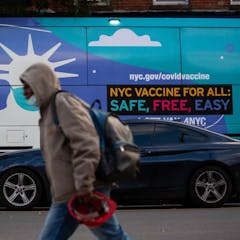
Articles on Health equity
Displaying 1 - 20 of 49 articles

De-centring medical expertise means fostering skillsets that reduce disparities in health outcomes. Medical expertise alone is great for those with social privilege, but not enough for the rest.

Diabetes trials are leaving out people who are most affected by diabetes, which creates a series of problems include the greater likelihood of missing rare and potentially dangerous side effects.

The federal government has announced almost $50 million in funding for gynaecological health care. But there’s more to do to help women with chronic pain.

Many Black patients experience stark differences in how they’re treated during medical interactions compared to white patients.

Māori and Pacific people already face a disproportionate burden of influenza and a persistently reduced life expectancy. Lowering the age for free flu vaccination is essential for achieving equity.

New Zealand’s health and education sectors are largely siloed and separate. But all the evidence points to collaboration within schools leading to better health and educational outcomes for children.

Arguments against including Indigenous cultural perspectives and experiences in public policy have spilled over into prejudice and racism on both sides of the Tasman. That harms democracy.

Native Americans sent to government-funded schools now experience significantly higher rates of mental and physical health problems than those who did not.

The outcomes of obstetric operations has improved in the past decades. But women need equitable surgical care throughout their lives - not just during childbirth.

The Medicines Patent Pool was created to promote public health, facilitating generic licensing for patented drugs that treat diseases predominantly affecting low- and middle-income countries.

While gender-affirming health care is essential to the well-being of trans people, access to quality services varies significantly by geographic region and social context.

Overcoming the access barriers and biases that underrepresented and underserved communities face could not only improve research participation but also improve care.

Engaging in open and honest dialogue with the public to increase understanding of health inequities has never been more important.

When states reduce barriers for low-income children to get coverage, their mothers are more likely to be married and less likely to smoke.

While policy organizations publicly claim that they want input from racialized and other marginalized communities, many fail to listen to, accept or integrate what those communities have to say.

The mental health impact of the pandemic has not affected everyone equally. An equitable approach to mental health promotion, prevention and treatment can help ensure equitable access to services.

Record-breaking technology can sequence an entire human genome in a matter of hours. The work could be a lifeline for people suffering from the more than 5,000 known rare genetic diseases.

Vaccines and medical treatments can only go so far in an unequal society. Facing the ongoing history of racial discrimination and bias in the US would help end the pandemic.

Listen to experts discuss the business practices of pharmaceutical companies in The Conversation Weekly podcast.

Rapid antigen testing might be convenient. But high prices for home kits will put people off, compounding disadvantage.
